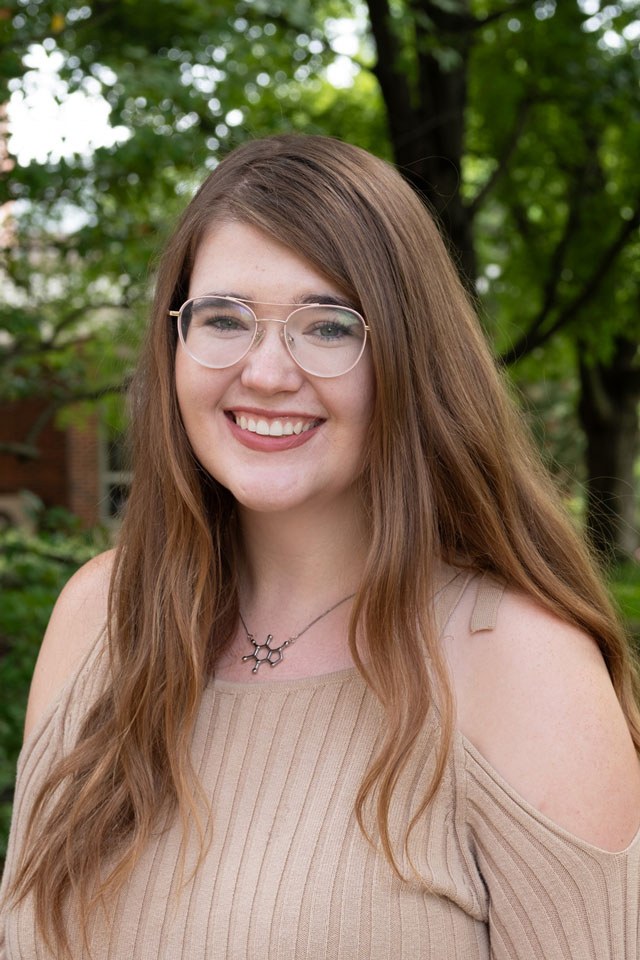This is the seventh short news article written by students, during the professional development class of Spring 2024, about each other's research.

Alison Jennings
Student Spotlight: Alison Jennings
By Shorooq Alharbi
Corn accounts for over 95 percent of total grain production in the United States. Many insects attack corn plants. Farmers typically turn to pesticides to control the pests, which can be expensive and harmful to non-target insects. But Alison Jennings, a graduate student in Jared Ali’s research group in the Department of Entomology at Penn State, thinks there is a better way.
Cover cropping is a potential way to minimize pesticide use. Grasses, legumes, and Brassicas are cover crops planted between harvests. These crops improve soil fertility and reduce soil erosion. New studies from the Ali lab suggest they also reduce insect damage in crops, such as corn, planted in these soils in the following season.
Jennings asks, “How exactly can cover crops improve corn defense mechanisms against herbivorous insects?”
Jennings hypothesizes that the cover crops modify the soil in some way, allowing the corn plant growing in the soil the next season to mount a stronger defense against pests that feed on corn, such as the fall armyworm. To better understand what cover crops lead to improved soil, Jennings will study the effect of soil collected from three cover crops: radish, wheat, and radish-wheat mix.
During her experiments in August-October 2023, Jennings planted corn in these three different soils and added individual caterpillars to each plant to measure their feeding behavior. Jennings’ data showed that the fall armyworm exhibited better performance on corn grown in radish soil than wheat soil, which means that radish is not a good choice for herbivore management. These results led her to the second question:
“What caused the fall armyworm to perform differently on different plants? Do natural plant chemicals in the corn, like hormones, differ based on the soil the corn grows in?”
Over the spring and summer of 2024, Jennings hopes to discover which plant defensive chemicals in the corn are being modified by the soil from radish cover crops versus other cover crops.
Jennings’s love for chemical ecology and endeavor to understand insect-plant interaction has driven her to "Better guide farmers on what cover crop to grow and help them to choose the best sustainable farming practices."
Alison Jennings is a master’s student in the Department of Entomology at Penn State. She is advised by Dr. Jared Ali. This project is funded by the Foundation for Food and Agriculture Research (FFAR).

